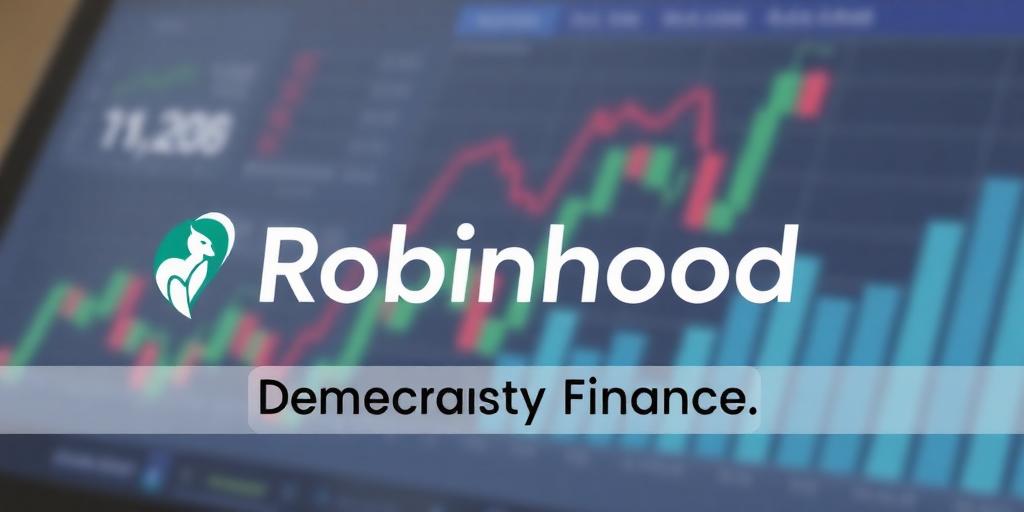Examining Robinhood's Growth: Democratizing Finance (and its Pitfalls)
Robinhood Markets, Inc. has rapidly become a recognizable name in the financial technology sector. Founded in 2013, the company set out with a clear mission: to democratize finance for all. By offering commission-free trading and a user-friendly mobile app, Robinhood attracted millions of new investors, particularly millennials and Gen Z, who were previously excluded from traditional investment platforms.
The Rise of Commission-Free Trading
One of Robinhood's most disruptive innovations was the introduction of commission-free trading. Traditional brokerage firms typically charged a fee for each trade, which could be a barrier for small investors. By eliminating these fees, Robinhood made it more accessible for individuals to start investing with smaller amounts of capital. This model forced established players to follow suit, leading to a widespread shift towards commission-free trading across the industry.
User-Friendly Interface and Accessibility
Robinhood's app is designed with simplicity in mind. Its intuitive interface and easy-to-understand features make it appealing to novice investors who may find traditional brokerage platforms intimidating. The app also provides educational resources and real-time market data to help users make informed investment decisions.
The Gamification of Investing
While Robinhood's user-friendly design has been praised, it has also been criticized for gamifying investing. The app uses features such as push notifications, virtual confetti, and a sleek interface to make trading feel like a game. This can encourage excessive trading and risk-taking, especially among inexperienced investors who may not fully understand the potential consequences.
Controversies and Challenges
Robinhood's rapid growth has not been without its challenges and controversies. In 2020, the company faced scrutiny for restricting trading in certain stocks, including GameStop, during a period of high volatility. This decision sparked outrage among users and raised questions about Robinhood's commitment to its mission of democratizing finance.
The company has also faced criticism for its handling of customer service issues and for allegedly failing to adequately protect its users from fraud and market manipulation. Regulators have raised concerns about Robinhood's compliance with securities laws and its potential conflicts of interest.
Impact on the Market
Robinhood's impact on the financial market has been significant. By attracting a new generation of investors, the company has increased market participation and liquidity. The rise of retail trading, fueled in part by Robinhood, has also led to increased volatility in certain stocks and sectors.
The Future of Robinhood
Looking ahead, Robinhood faces the challenge of balancing its mission of democratizing finance with the need to ensure responsible and sustainable growth. The company will need to address concerns about its business practices, strengthen its regulatory compliance, and enhance its educational resources to help users make informed investment decisions.
Conclusion
Robinhood has undoubtedly democratized finance by making investing more accessible and affordable for millions of people. However, its gamified interface and past controversies highlight the potential pitfalls of this approach. As the company continues to evolve, it will be crucial for it to prioritize investor protection and responsible innovation to ensure the long-term health and stability of the market.









